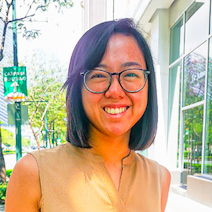

One week has passed since Manila was placed under "enhanced community quarantine." That first night, I didn’t sleep well. I stayed awake trying to comprehend the incomprehensible announcement made by our President and fearing the consequences of a mandate so poorly communicated and implemented. I must have dozed off trying to make sense of it all, but woke shortly after midnight to the sound of sirens blaring in the distance. I couldn't distinguish if it belonged to an ambulance or a police vehicle, but either was equally unnerving as it signaled a life that needed saving or one unable to be saved. In silence, I prayed that all sirens I heard and continue to hear were for lives saved. (READ: Luzon lockdown: What are the do's and don'ts?)
On the morning of March 16th, the world around me fell silent: no more sound of cars, of dogs barking, of the family in the neighboring house sharing meals or watching TV. Overnight, the sound of normalcy disappeared and was replaced by the eerie silence of uncertainty and fear. It was deafening.
Only the sirens resonated distinctly, and frequently. I hear them more often than the hourly church bells. With the rising number of COVID-19 cases and the rising death toll, I can't help but contemplate: "Today, for whom does the bell toll? Today, for whom does the siren sing?" As the poem concludes, it’s beside the point to know for whom – because it tolls for all of us. Any person's death is mankind’s loss, especially now, when a mistake in sanitation or a misused test kit could seriously endanger others.
I never imagined that social distancing would deprive us not only of physical touch, but also of the sounds of togetherness: laughter around the dining table, hugs with a comforting pat on the back, and the tender whisper of kisses. Sounds I never thought I would miss. It’s nothing like being deaf, although it comes close when you realize you can still hear, but what was taken away were the sounds you loved most. Like the voice of a loved one lost to the virus.
Silence is a double-edged sword that magnifies its harm and help. It's harmful when used as a response to the community's most pressing questions. It's harmful when one keeps silent about his or her travel history, or the truth about being exposed to a PUM/PUI. It’s harmful when we keep silent about injustice. These days, silence kills more than ever. (READ: Makati Med denounces Pimentel's 'irresponsible, reckless' protocol breach)
But silence can also be a saving grace and even a privilege. For those of us who are comfortably quarantined at home, cherish the silence of social distancing. Use it to reflect on how you can help, even without stepping outside. A heartfelt prayer will find its way through walls, and up to Heaven.
As I write this, my thoughts and prayers are with our health care workers. I can only imagine what it's like for them to constantly hear people beg for help, to be bombarded with the earsplitting alarm of a Code Blue or the shrill beep of someone flatlining, to hear the dying ask for their loved ones. Can you imagine what it feels like to hear yourself respond with "I'm sorry?" Or what it's like to hear someone's dying breath? Indeed, quiet moments are quite a privilege.
Seemingly, it’s a privilege that several politicians refuse to enjoy. The usual suspects are quick to speak boisterously (except our mumbling Mr. President) and callously, without empathy or logic. Perhaps if they spent more time in silence and thought, we would have a more rigorous plan to contain this virus and help the vulnerable. Perhaps, if they were placed under mandatory isolation regardless of the results of formal testing, then they could have the space to think logically, plan properly, and communicate thoughtfully to citizens. Perhaps this would also allow the test kits to go to those who truly need it.
Sirens and silence are the defining sounds of this pandemic. But recently, another is being amplified: the song of birds; representing hope that we will defeat this disease if we all do our part. Already we're hearing good news about containing the virus: countries with little to no new cases, increasing recoveries especially among the elderly, more test and PPE kits distributed, heightened compliance with social distancing, petitions for mass testing, and people helping even from the confines of their homes. (READ: LIST: How to help healthcare workers, frontliners during coronavirus pandemic)
In the weeks to come, I pray that we hear more good news such as thorough plans and accountability from our government. I hope we hear about significant progress in vaccine development and aid given to frontliners. I pray that we hear fewer sirens, and more birdsong.
And I pray that soon, we can all hear the words, "A cure has been found." – Rappler.com
Therese Joson is a Business Economics graduate from the University of the Philippines and currently specializes in Business Development for start-up companies in the technology and innovation space, specifically companies geared towards social impact.
She and her family are actively facilitating donations and aid to health care frontliners, some of whom are friends falling victim to COVID-19. Therese dedicates this piece to all health care frontliners to let them know that they’re not alone in this battle.
This piece is part of a series by youth leaders from #WeTheFuturePH, a nonpartisan movement of Filipino youth standing up for rights, freedom, and democracy.